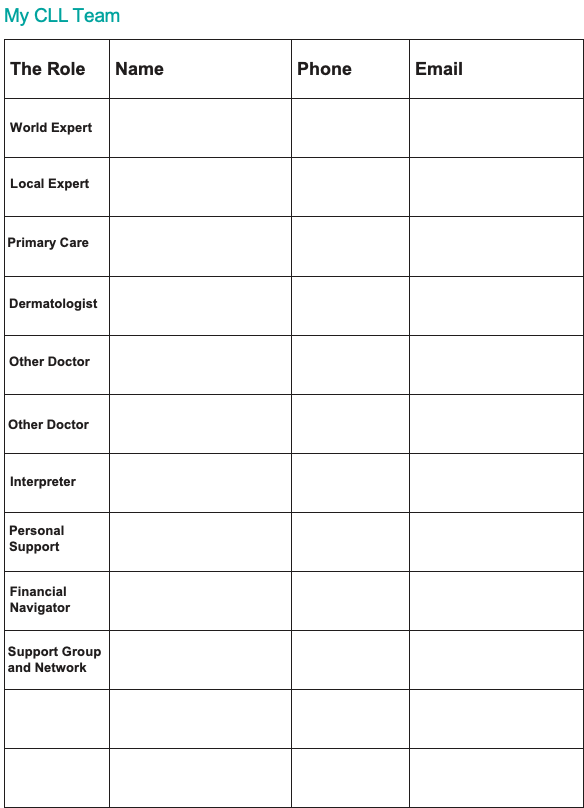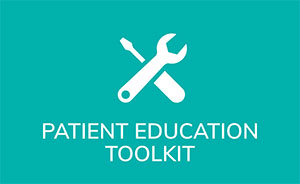Home » CLL / SLL Patient Education Toolkit » Putting Together a CLL Team
Putting Together a CLL Team
In science and medicine, information is constantly changing and may become out-of-date as new data emerge. All articles and interviews are informational only, should never be considered medical advice, and should never be acted on without review with your health care team.
Everyone should complete the CLL TEAM table below and post it on your fridge or a bulletin board to remind you that you have a whole gang supporting you and that cancer is best played as a team sport.
We strongly believe in the necessity of establishing a team led by a CLL expert and the data support us.
In a 2012 article in the journal CANCER, Dr. Tait Shanafelt and his fellow researchers found that even when controlling for other prognostic markers, patients who consulted a CLL specialist lived an average two years longer than those who did not.
So who is on our team? Here are the absolute minimum requirements to bring our best game:
- The World Expert: A CLL researcher/clinician who lives and breathes CLL, who will direct our overall strategy and who has access to the latest therapies and clinical trials. Our CLL Expert does not need to be local. He or she is our “second opinion”.
- The Local Expert: A local, available, competent and communicative general hematologist/ oncologist who works well with our World Expert, is there for us in a crisis, handles and explains the day-to-day issues and co-ordinates the bulk of our care.
- Dermatology, Primary Care, and Others: CLL patients are at higher risk for second cancers, especially of the skin, so it is critical to get age and gender appropriate cancer screening.
- The Interpreter or Note Taker or Recorder: A trusted family member or close friend who will attend our consultations with the Experts, recording the visits, taking notes and making sure that we have been heard and confirming the accuracy what we heard.
- Personal Support: Close friends and family whom we can count on for logistical and psychological support.
- Financial Navigator: Advocates can include a financial counselor/navigator, and a social worker. A financial navigator can also include a trusted family member or close friend who is willing to assist by calling insurance companies and questioning medical bills, contacting resources that can help lower the price of prescription drugs, or contacting organizations that will cover travel and lodging for travel related to treatment, and more.
- CLL Support Group and Network: Although some of us may not have a strong team of friends and family members to help us deal with our cancer, we can all rely on our internet friends and often on the members of a local support group through the CLL Society Support & Education Network and other trustworthy organizations for valuable counsel and support. Fellow patients can be very generous in sharing their experiences through live meetings or online through The CLL Society and on the many CLL online forums. Don’t underestimate the importance of a CLL support group and network.
Click here to download and complete the form below.




